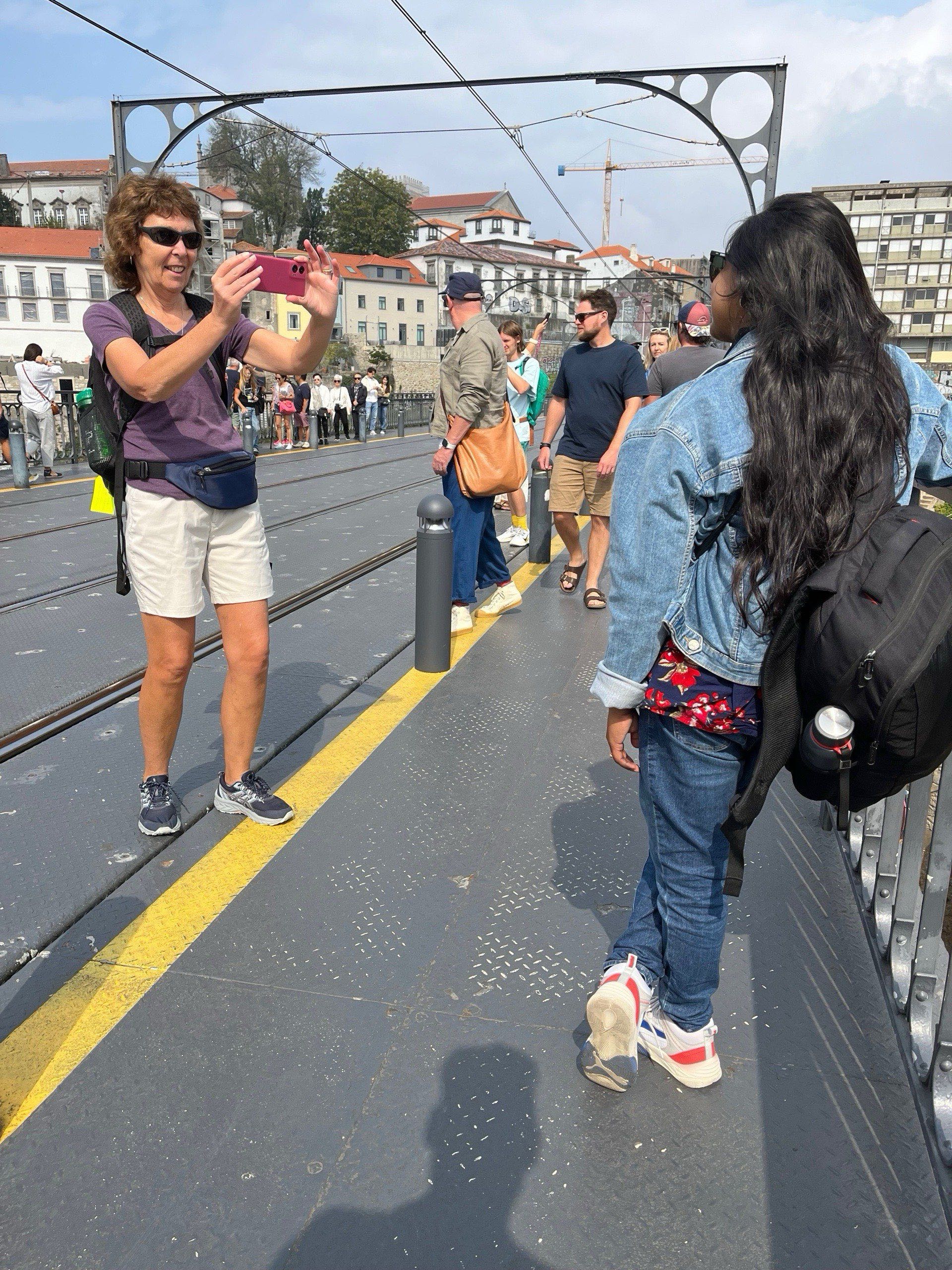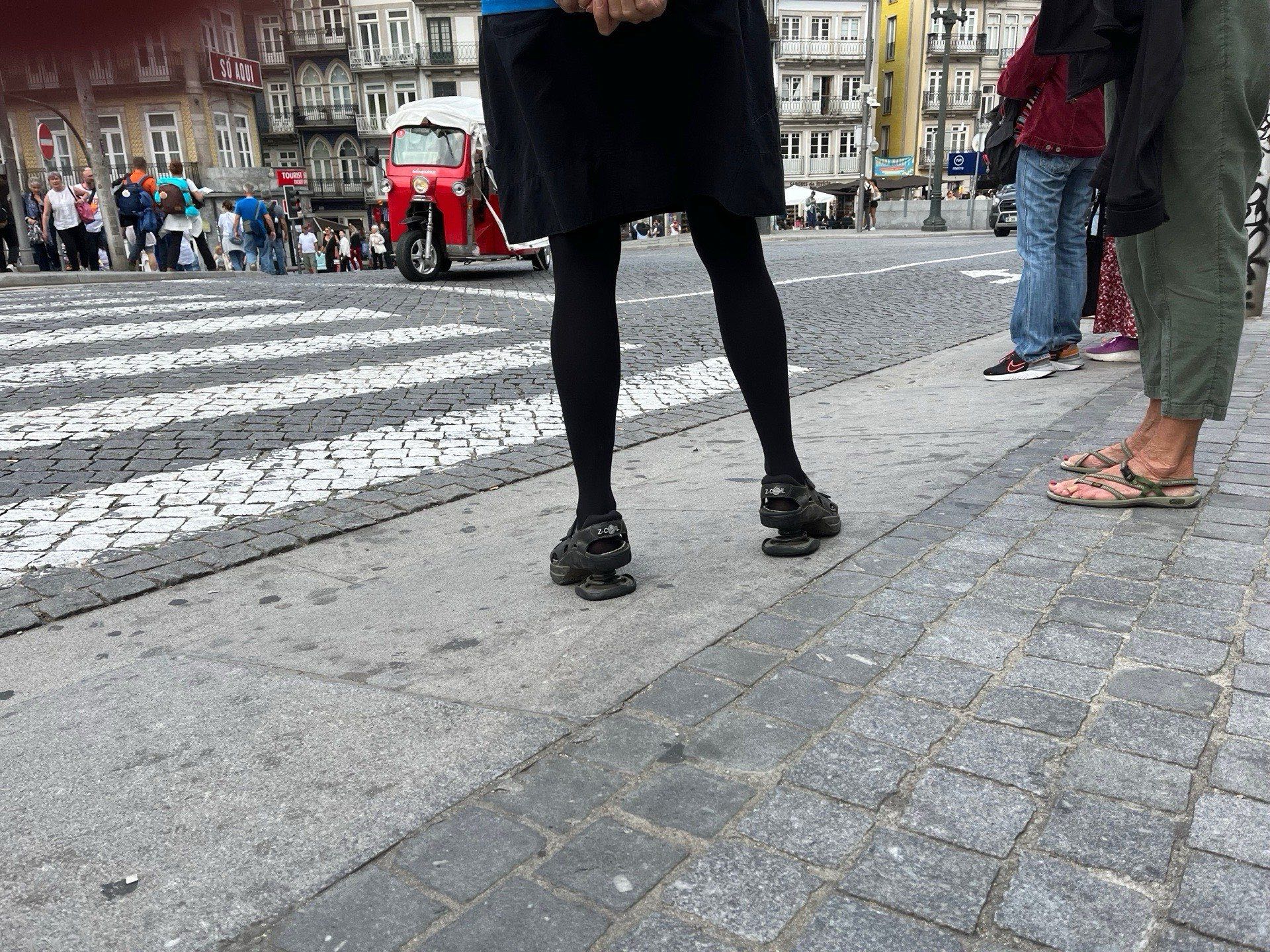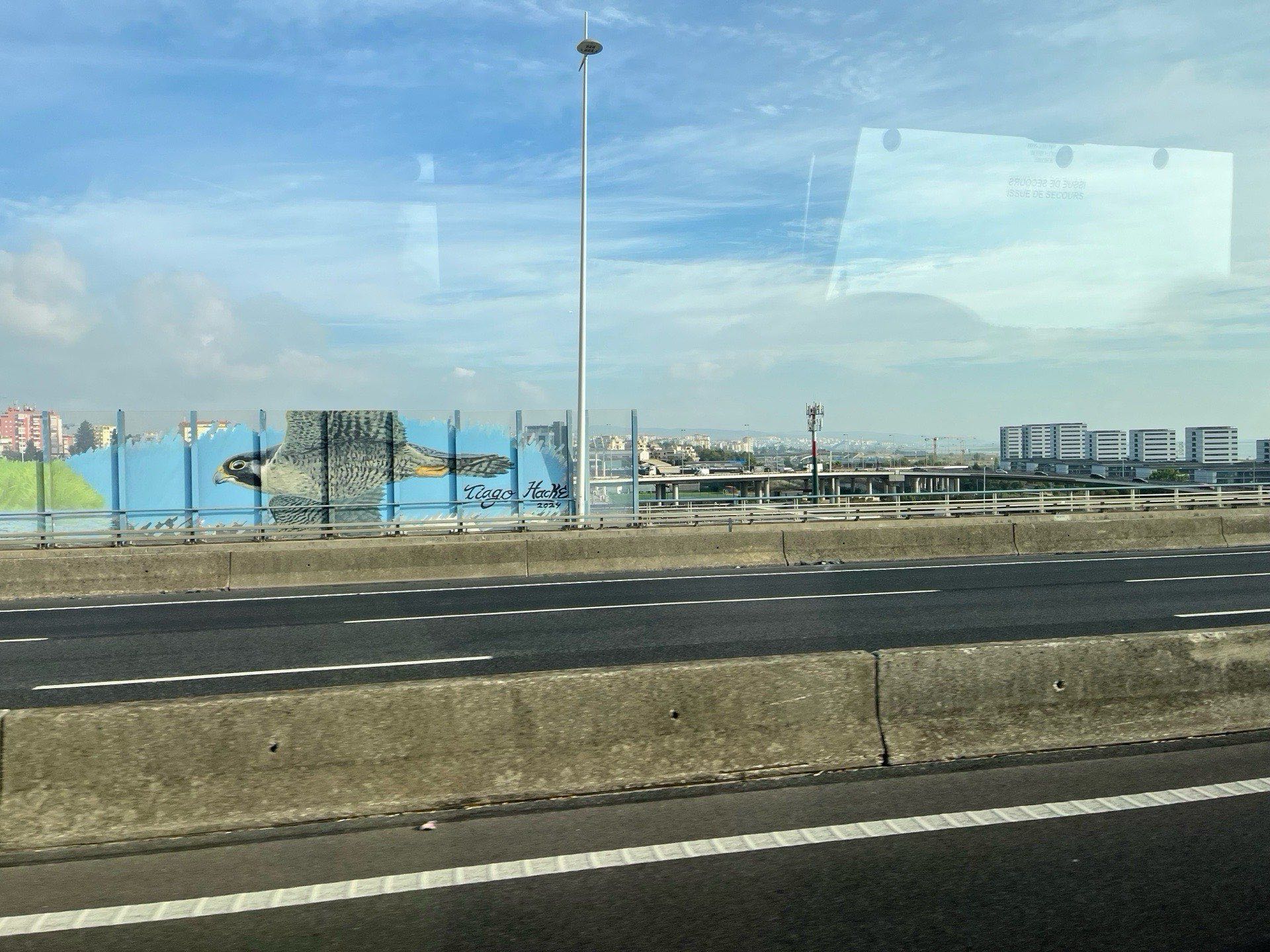It strikes me that we now have some knowledge, not familiarity but a particularly partial knowledge, of Lisbon. We flew in, found & used the Metro (red line) to Oriente Station, wandered that area a little, caught a train back, returned days later by train, used the red line, transferred to the green, walked a few blocks, checked into a hotel, dined nearby, slept, awoke retraced our path, found the bus platform, boarded, and rode out.
I wrote “not familiarity” but the Asian woman at the coffee stand in the station recognized me, or pretended to.
Yesterday on the train I read an article about how travel slows aging.
We can point to elements of our recent experiences that match things discussed in the article. Meg has some photos that speak to the travel itself:

interacting and observing others…

Inside our Lisbon Hotel

Leaving Lisbon

We just rode across a long & graceful bridge over the Tagus. Here’s a poem about saying goodbye to it:
An Adieu to Tagus
by Luis Vaz de Camoes
Waters of gentle Tagus, calmly flowing
Through these green fields ye freshen as ye flow,
On flocks and herds, plants, flowers, all things that grow,
On shepherds and on nymphs delight bestowing;
I know not, ah! sweet streams, despair of knowing
When I shall come again; for as I go,
And ponder why, ye fill me with such woe,
That in my heart a deep distrust is growing.
The Fates have e'en decreed this sad adieu,
Aiming to change my joys into despair,
This sad adieu that weighs upon my years:
Of them complaining, yearning after you,
With sighs I shall invade some distant air,
And trouble other waters with my tears.
That’s goddamn sad. It’s hard to sustain the Sonnets from the Portuguese joke when all of them are also so sad. I know the famous one is not sad, so maybe they get more cheerful. Anyway, here’s another sad one:
VI
Go from me. Yet I feel that I shall stand
Henceforward in thy shadow. Nevermore
Alone upon the threshold of my door
Of individual life, I shall command
The uses of my soul, nor lift my hand
Serenely in the sunshine as before,
Without the sense of that which I forbore—
Thy touch upon the palm. The widest land
Doom takes to part us, leaves thy heart in mine
With pulses that beat double. What I do
And what I dream include thee, as the wine
Must taste of its own grapes. And when I sue
God for myself, He hears that name of thine,
And sees within my eyes the tears of two.
Comments